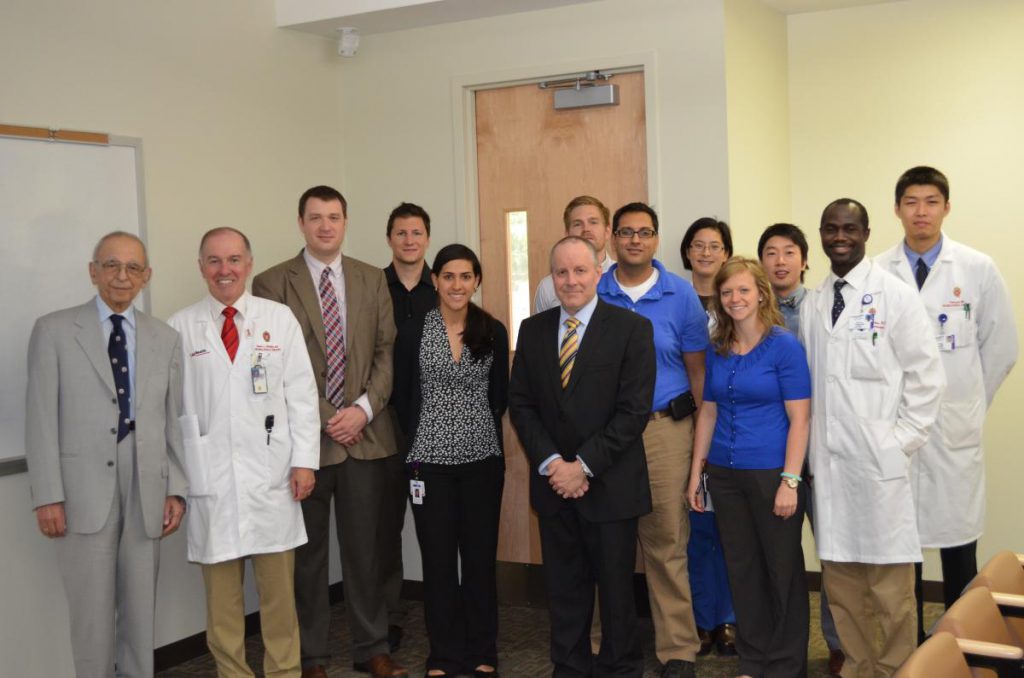Residency Program
University of Wisconsin Hospital and Clinics
Department of Neurological Surgery
Residency Program Aims
At the University of Wisconsin-Madison, Department of Neurological Surgery, we seek to deliver outstanding neurosurgical care to our patients, with compassion, quality, and uncompromising integrity.
Aims:
- We intend to instill the upcoming generation of neurosurgeons with the training, knowledge, and experience necessary to become experts in the field and spear head clinical and basic science research that will change the paradigm of how patients are cared for in order to maximize safety and effectiveness.
- The program will attract high-quality applicants from a geographically and culturally diverse applicant pool.
- We will provide a collegial educational atmosphere, which promotes professional exploration and growth, work-life balance, and personal wellness.
- We will provide feedback to the residents regarding their cognitive, professional, and clinical progress.
- Our residents will complete all relevant academic, cognitive, and clinical milestones as necessary to achieve certification of their ability to provide excellent neurosurgical care in any environment.

Table1: Overview of Neurosurgical Training Years PGY-1 through PGY-7
Click table to enlarge
Table 2. Rotations |
||||||
| PG Year | Rotation | Site | Months | Cumulative Year | ||
| 1 | Fundamental Clinical Skills | UW | 12 | 1 | ||
| 2 | Junior Resident | UW | 9 | 2 | ||
| Neuroradiology | UW | 3 | ||||
| 3 | Junior Resident | Meriter | 6 | 3 | ||
| Neuropathology | UW | 3 | ||||
| Junior Resident | UW | 3 | ||||
| 4 | Junior Resident | UW | 6 | 4 | ||
| Research/Elective | UW | 6 | ||||
| 5 | Senior Resdient | UW | 6 | 5 | ||
| Research/Elective | UW | 6 | ||||
| 6 | VA | VA | 6 | 6 | ||
| Senior Resident | UW | 3 | ||||
| Elective/Enfolded Fellowship | UW | 3/12 | ||||
| 7 | Chief Resident | UW | 12 | 7 | ||
Table 3. Approximate Call Schedule |
||||
| Rotation | Night / Weekend Call Schedule | |||
| PGY-1 at UW | Four weeks of night float while on “general surgery night emergency trauma” (see NIGHT* in table 1). | |||
| PGY-2 Junior Resident UW Neurosurgery | In house UW primary call every 4 – 5 days | |||
| PGY-3 – Meriter Hospital (6 months) | No in house call. Primary call from home weekday nights and every other weekend. | |||
| PGY-3 – Junior Resident UW Neurosurgery (3 months) | In House UW Primary Call every 4-5 days | |||
| PGY-3 – Neuropathology at UW (3 months) | In house UW primary call every 4-5 days | |||
| PGY-4 | In house UW primary call every 4-5 days | |||
| PGY-5 | No primary call. Senior resident back up call from home q 4-5 days | |||
| PGY-6 | No primary call. Senior resident back up call from home q 4-5 days | |||
| PGY-7 | No primary call. Senior resident back up call from home q 4-5 days | |||


